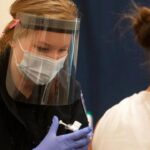Lessons Learned and Opportunities for CBEMS Growth Following the COVID-19 Pandemic
JCEMS shares stories from CBEMS agencies and discuss potential areas of growth for CBEMS agencies moving forward.
Ambulance Usage on a Collegiate Campus as a Function of Age and Gender
Bradshaw et al. attempt determine if age and gender exert significant influence on a patient’s decision to utilize ambulatory transport to the emergency department.
Evaluation of Transport Policies for Intoxicated Undergraduate Students by Undergraduate Emergency Medical Services Agencies
The authors compare existing and desired transport policies for intoxicated undergraduate students among collegiate EMS agencies.








